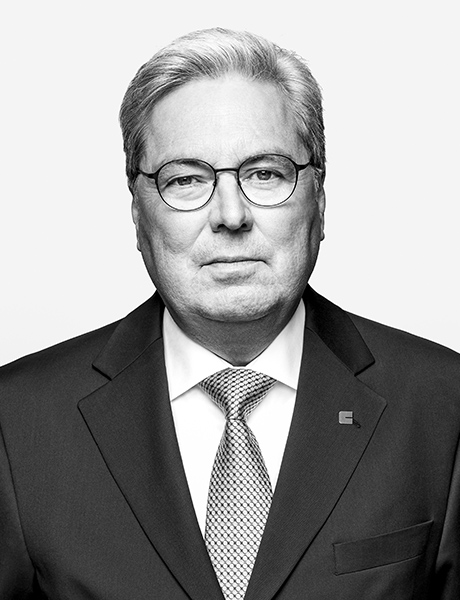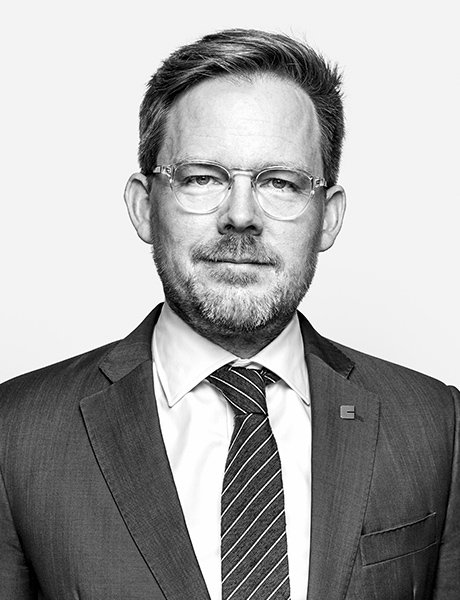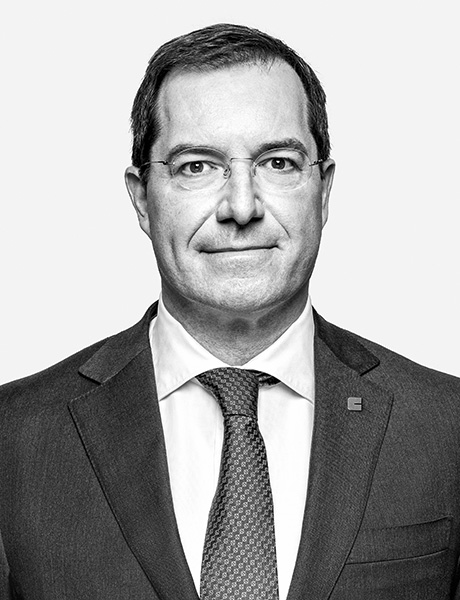Overview on Corporate Governance
Clariant is committed to international compliance standards, ensuring checks and balances between the Board and Management, as well as a sustainable approach to value creation.
1. Principles of Corporate Governance
The Group commits to Swiss and international standards of corporate governance by following the respective statutory provisions and the rules issued by the SIX Swiss Exchange and by implementing the principles of the Swiss Code of Best Practices for Corporate Governance.
Corporate Governance Report
This short overview summarizes some aspects of corporate governance that are particularly relevant for integrated value creation at Clariant. For more detailed information, see the separate Corporate Governance Report
2. Organizational overview
Clariant is headquartered in Muttenz, Switzerland. The Group’s continuing operations comprise five Business Units (Additives; Catalysts; Functional Minerals; Industrial & Consumer Specialties; Oil and Mining Services), which are reported in the three Business Areas Care Chemicals, Catalysis, and Natural Resources. The Business Units Masterbatches and Pigments are held for sale and report under discontinued operations.
The organizational structure SEE FIGURE 001 is further comprised of eight Business Services, Group Technology & Innovation (GTI), Global Business Services, the Regions, and the Corporate Center, which centralizes key corporate functions. The Executive Committee is responsible for the management of the Group.
001 CLARIANT ORGANIZATIONAL STRUCTURE AS OF 31 DECEMBER 2019
1 In 2019, Clariant decided to dispose the Business Units Masterbatches and Pigments. The two Business Units concerned have been reclassified to discontinued operations.
3. The Board of Directors
The members of the Board of Directors of Clariant Ltd, the Chairman of the Board of Directors as well as the members of the Compensation Committee, are elected individually for a term of one year by the Annual General Meeting.
At the end of 2019, the Board of Directors of Clariant Ltd comprised of 12 members: Hariolf Kottmann (Chairman and, since 24 July 2019, Executive Chairman), Dr. Khaled Homza A. Nahas (Vice-Chairman), Abdullah Mohammed Alissa, Günter von Au, Calum MacLean, Geoffery Merszei, Eveline Saupper (independent Lead Director since 24 July 2019), Carlo G. Soave, Peter Steiner, Claudia Suessmuth Dyckerhoff, Susanne Wamsler, and Konstantin Winterstein. All members of the Board of Directors, except for Hariolf Kottmann, who held the position of CEO until 15 October 2018 and who has been serving as Executive Chairman since 24 July 2019, are considered to be independent in accordance with best-practice standards.
Of the nine male and three female members of the Board of Directors, five have German citizenship, two Saudi Arabian, two British, one Swiss, one Canadian and Swiss, and one US citizenship. Concerning education, Board members hold PhDs or other degrees in the following fields: four in economics, political economy, languages and economics, or law; three in chemistry; three in industrial engineering, production engineering, engineering management, mining and engineering, or engineering and economic systems; and two in business administration. With regard to age, one member of the Board is 50 years or younger, one is 51 – 55 years, four are 56 – 60 years, three are 61 – 65 years, and three are 65 – 70 years of age. Concerning the first year of election to the Board, two Board members were first elected in 2008, two in 2011, one in 2015, three in 2016, and four in 2018.
»The Board of Directors has reviewed the 2019 Integrated Report and proposes its approval to the Annual General Meeting.«
Hariolf Kottmann Executive Chairman
4. The Board of Directors’ responsibilities and committees
The Board of Directors is the ultimate decision-making authority for Clariant Ltd in all matters except those decisions reserved by law or the Articles of Association for the shareholders. The Board also provides the strategic direction for the Group and reviews and further develops the company’s strategy annually during a two-day Board of Directors’ meeting.
Further duties of the Board include ensuring a management and corporate culture that is appropriate for the company’s objectives, as well as an internal control system and adequate risk and compliance management, particularly regarding financial, corporate governance and citizenship, personnel, and environmental protection matters.
Members of the Board of Directors constitute the following committees: the Nomination Committee, whose duties include drawing up principles for the selection of candidates for election and reelection to the Board of Directors, the CEO and the other members of the Executive Committee, and preparing the corresponding recommendations; the Compensation Committee, which reviews and proposes to the Board of Directors the compensation and benefits policies and programs, evaluates the performance criteria relevant to compensation, and determines individual executive compensation and benefits of the members of the Board of Directors and the Executive Committee, subject to the approvals of the total compensations by the Annual General Meeting; and the Audit Committee, whose duties include reviewing the activities of the external auditors, their collaboration with the internal auditors, and their organizational adequacy. Furthermore, the Audit Committee reviews the company’s internal control and risk management systems and reviews compliance with the law and internal regulations, particularly regarding the Code of Conduct.
5. Management of the Group
The Board of Directors has delegated the executive management of the Clariant Group to the CEO and the other members of the Executive Committee. The members of the Executive Committee are appointed by the Board of Directors on the recommendation of the Nomination Committee.
At the end of 2019, in addition to Hariolf Kottmann, who acts as Executive Chairman until the position of Chief Executive Officer is newly filled, the Executive Committee consisted of Chief Financial Officer Patrick Jany, Chief Operating Officer Hans Bohnen, and Bernd Hoegemann.

Hariolf Kottmann
Executive Chairman

Hans Bohnen
Chief Operating Officer (COO)

Bernd Hoegemann
Member of the Executive Committee

Patrick Jany
Chief Financial Officer (CFO)
Not counting Hariolf Kottmann, whose background is already included in the summary of the composition of the Board of Directors, the other three male members of the Executive Committee have German citizenship. Concerning education, Executive Committee members hold PhDs or other degrees in the following fields: one in chemistry and business administration; one in economics, psychology, and business administration; and one in economics. With regard to age, one of the members is 50 years or younger, and two are 51 – 55 years. The first year of membership in the Executive Committee was 2006 for one member, 2018 for one member, and 2019 for one member.
The Executive Committee is primarily responsible for the implementation and monitoring of the Group strategy, the financial and operational management of the Group, and the efficiency of the Group’s structure and organization.
6. Enterprise risk management
In the framework of Enterprise Risk Management Policy, risk assessments are prepared by Business Units, Service Units, Corporate Functions, and Regions to assess threats that will impact the achievement of Clariant’s objectives. These objectives are a result of the overall strategy of the Group as set by the Board of Directors and implemented by the Executive Committee. The Executive Committee is responsible for monitoring the risk assessments for relevance and consistency.
The Executive Committee has formed an Ethics and Risk Management subcommittee, which maintains an up-to-date understanding of areas where Clariant is, or may be, exposed to risk issues, and seeks to ensure that management is effectively addressing those issues. The Ethics and Risk Management Committee meets on a quarterly basis.
A summary risk assessment is submitted annually to the Executive Committee, Audit Committee, and Board of Directors for review. In the event of new or changed risks, reporting is accelerated.
To support functional responsibility, certain functions have access to risk assessments to assist them in their roles. Examples of such functions are Environmental Safety & Health Affairs (ESHA), to identify key sites for their property risk survey program, or Group Procurement, to ensure reliable and compliant supply of raw materials.
7. Significant shareholdings and shareholders’ participation rights
At 31 December 2019, the following shareholders held 3% or more of voting rights in Clariant Ltd: SABIC International Holdings B.V., 25.77%1; APG Asset Management N.V., 5.01%; Blue Beteiligungsgesellschaft mbH, 3.49%; Citadel Multi-Strategy Equities Master Fund Ltd, 3.285%; and Millennium Partners LP, 3.04%.
Subject to certain limitations on voting by nominees, each registered share entitles the holder to one vote at the Annual General Meeting. Shareholders have the right to receive dividends and such other rights as are granted by the Swiss Code of Obligations. However, only shareholders entered in the Clariant share register may exercise their voting rights.
Shareholders representing shares with a total par value of CHF 1 million have the right to submit written requests that an item be included on the agenda at least 45 days prior to the 26th Annual General Meeting on 7 April 2021.
1 SABIC acquired 24.99% of the shares of Clariant Ltd on 17 September 2018. The difference between this figure and the above-mentioned 25.77% corresponds to the amount of treasury shares held by Clariant Ltd, which have to be aggregated to the shares held by SABIC solely for regulatory disclosure purposes due to the Governance Agreement entered into by SABIC and Clariant on 17 September 2018.
Compliance is a key element of Corporate Governance. It refers to compliance with the law and directives as well as with voluntary codes within the company. View entire glossary
A substance added to products in small quantities to achieve certain properties or to improve a product. View entire glossary
A substance that lowers the activation energy, thereby increasing the rate of a chemical reaction without being consumed by the reaction itself. View entire glossary
For the financial reporting, Clariant grouped its businesses in three core Business Areas: Care Chemicals, Catalysis, and Natural Resources. View entire glossary
These are plastic additives in the form of granules with dyestuffs or other additives used to dye or alter the properties of natural plastic. View entire glossary
Pigments are substances used for coloring; they are used in a technical manner, for example in the manufacture of dyes, varnishes, and plastics. View entire glossary
Management body of joint stock companies; at Clariant the Executive Committee currently comprises four members. View entire glossary
Management body of joint stock companies; at Clariant the Executive Committee currently comprises four members. View entire glossary